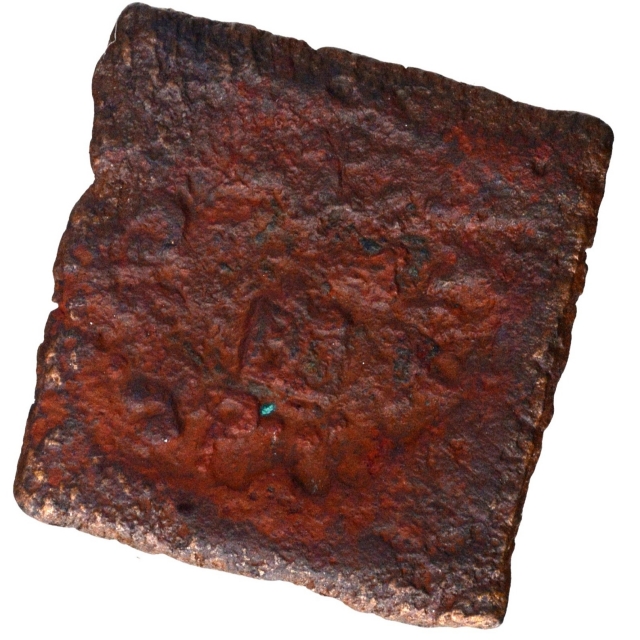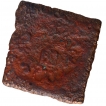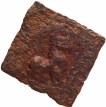This Lot is closed.
- P-Auction # 27
- Bids: 1
- Views:1524
| Start Price 30000 | Estimated Price 30000-35000 |
| login, to view Hammer value | |
| Quick Description | ||||
|---|---|---|---|---|
| Denomination | Copper Unit | Metal | Copper | |
| Full Description: Agrodaka (Agacha)/Agroha Janapada, Punjab-Haryana Region (150-100 BC), Post – Mauryan period, Copper Square Unit, Obv: tree-in-railing with four compartments in the center, Brahmi legend around “(Agodaka) Agacha Ja(napadasa)”, Rev: Lion to right with upraised tail, 0.89g, 14.58x14.14mm, (variant of type # Pl. II-7-8, Tribal coins of Ancient India by Devendra Handa), about very fine, Extremely Rare. The Kingdom of Agreya, as mentioned in a couplet from Mahabharata, also known as Agrodaka, mentioned in the Buddhist text – Mahamayuri, was established by King Agra Sen around 5000 years ago near the present day town of Agroha, which lies around 23 kms from Hisar. It is said in literary sources that Maharaja Agrasen established Agroha around 3rd century BC as a republic, a ‘Janapadasa’, adopting the principles of social welfare, brotherhood and non-violence. The term Agodaka which appears on the coins of this Janapada is sometimes identified with Agrodaka (Agra+udaka) which literally means place of foremost (Agra) water (udaka). Another derivation of the word Agodaka has been made keeping the present Agroha form in view. Agroha thus has been derived from Prakrit form Agga-rohaya of its Sanskrit equivalent Agra-rodhaka, meaning the foremost (agra) bank (rodhaka). James Prinsep, in 1858, is credited to be the first to publish a coin of the Agreya tribe and Allan, the first to make out the Brahmi script ‘Agodaka Janapadasa’, attributed to the Republic of Agrodaka or Agreya. All Agroha coins are die-struck and have legends only in Brahmi and invariably show tree in railing on the obverse and Seven types of reverse, they are Bull type, Lion type, Composite animal type, Lakshmi type, Chaitya type, Temple type and Chakra type. It is said that the Agarwal and Agrahari communities claim their origin from Agroha. According to their legends, Agroha was the capital of their founder Agrasena. | ||||


